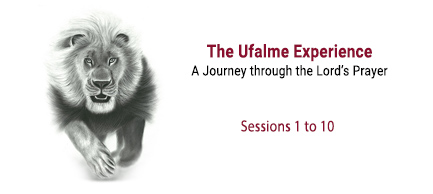Back to series


Read and reflect on the following article by Rev. Meshack Habib
(Download this article as a PDF).
Readiness for Temptation
In our Bible passage we learn that Jesus was led by God’s Spirit into the wilderness where He faced temptation.
Sometimes God can lead us into testing and sometimes we take ourselves there. God’s provision may expose us to circumstances or scenarios that help shade off our undesired traits and help us to become more like Jesus. It is helpful for us to consider our vulnerable circumstances and environments. What are the situations that lead you into temptation?
Luke tells us that “Jesus, full of the Holy Spirit …was led by the Spirit.”
Probably the greatest undoing of the Christian today is not the magnitude of temptation but our lack of preparedness. Christ was well ready for the encounter He was about to face. Oh that like Jesus we would be “full of the Holy Spirit” that when the enemy comes with temptation, we would withstand because we are strong enough and our relationship with God is sure enough.
The Reality of Temptation
We should expect to face temptation in life, and God may lead us into specific times of trial and testing.
Bible scholars have generally divided Jesus’ temptation into three categories:
1. The lust of the flesh refers to the quick gratification of our physical desires. Could Jesus be satisfied by His Father in His most vulnerable state of hunger and His body’s need for food? Would He wait upon God’s providence or yield to the temptation to command the stone to become bread?
2. The lust of the eyes refers to sinful desires to have things that we see such as money, material possessions, or power. The devil showed Jesus things that were very appealing, the splendor of “all the kingdoms of the world.” He offered to give it all to Jesus if He would bow low to worship the devil.
3. The pride of life refers to self-worship or boasting about what one has or does. After Jesus refuses to worship the devil, it seems the tempter shifts the focus to self-worship, by enticing Jesus to a self-confidence of His divine abilities to defy the laws of nature and “throw” Himself to the ground, probably provoking Him “aren’t you God?” and of course the angels would attend to Jesus!
 Learning from the Old Testament, the children of Israel passed through the wilderness for a season to wean them from their “Egyptian influences and habits” until they had fully embraced the law of Yahweh that would govern their relationship with God and their neighbors in readiness to enter and occupy the promised Land. “Wilderness” moments not only help strengthen the individual for future conquests but also deepens one’s reliance and relationship with God.
Learning from the Old Testament, the children of Israel passed through the wilderness for a season to wean them from their “Egyptian influences and habits” until they had fully embraced the law of Yahweh that would govern their relationship with God and their neighbors in readiness to enter and occupy the promised Land. “Wilderness” moments not only help strengthen the individual for future conquests but also deepens one’s reliance and relationship with God.
Besides, God’s leading one into the “wilderness” experience, James the apostle cautions the Christian against blaming God as our source of temptation but rather to watch out that each one is “… lured and enticed by one’s own desire” (James 1:14). James summarizes the sequence in yielding to temptation as: Desire Delivers Sin; Sin Matures to Death.
Similarly, every Christian believer will face, is facing or has just come out of a temptation. Learning from Jesus our Lord, being tempted is not sin but yielding to the tempter is sin. The avenues of our temptation may be our “Possession, Power or Pride.” We live in a culture that demands and promotes instant gratification and is impatient to wait upon God’s provision. The desire to own property like land or housing has led many to engage in corrupt or unjust acquisition. The hunger for “Power” has left leaders refusing to hand over their offices even when their terms are expired. And the worship of self has robbed the church and our nation of servant leaders, when “Pride” pushes leaders to be served and not to serve.
The Worthiness of Temptation
The word in the New Testament that is translated “temptation” has the idea of testing metal to determine if it is genuine, true, and pure. When the Christian believer thinks of temptation, there is need to change one’s perspective. Rather than seeing the “devil” near, let’s consider temptation as a process that leads to an outcome. Every baker puts the dough in the oven and pierces the cake with a sharp object to help them know if the cake is well cooked from the inside. When cooked well the cake is served to all, but if uncooked the cake is thrown away. Temptation can lead one to “fail”, but it can also help us draw nearer to God to rely on His strength and provision so that we become stronger in Him.
Our Response to Temptation
 We can either respond to temptation with faithfulness to God and His Word or by disobeying God and running after false pleasures and empty promises that will ultimately hurt and trap us. Notice how Jesus integrates the knowledge of God’s Word and puts the Word into practice to defeat the devil’s advances. It is during temptation that the knowledge of God’s Word is put into practice through obedience.
We can either respond to temptation with faithfulness to God and His Word or by disobeying God and running after false pleasures and empty promises that will ultimately hurt and trap us. Notice how Jesus integrates the knowledge of God’s Word and puts the Word into practice to defeat the devil’s advances. It is during temptation that the knowledge of God’s Word is put into practice through obedience.
Weapons to Face Temptation
Jesus used God’s Word to counter the Devil’s temptations. He exposed the devil’s promises as false and contrary to God’s Word and God’s purposes for His people.
To deflect the first temptation of commanding stone to bread Jesus quotes Deuteronomy 8:3 where the author reminds the Israelites the meaning of manna from heaven. He says “…So God humbled you, allowed you to hunger, and fed you with manna which you did not know nor did your fathers know, that He might make you know that man shall not live by bread alone; but man lives by every word that proceeds from the mouth of the Lord.”
Jesus shifts the focus from the enemy’s provision of temporal bread that will satisfy momentarily to eternal bread that whoever feeds on shall “hunger no more”. When the enemy parades worldly possession before us; shift your focus to Jehovah Jireh who is our eternal provider. Jesus says ask, seek and knock (Matthew 7:7) from the Father who provides.
Responding to the second temptation to worship the devil in exchange for worldly kingdoms and authority, Jesus quotes Deuteronomy 8:13 “You shall fear the Lord your God and serve Him…” Again Christs shifts the focus from temporal kingdoms and authority to God who is the Supreme Authority and the Creator and owner of all. Christ acknowledged the place of God as the Supreme above all kingdoms and authority.
Satan the deceiver, notices Jesus’ strength in knowledge and use of Scripture and imitates likewise by quoting Psalm 91:11-12 that “… He shall give His angels charge over you, To keep you in all your ways. In their hands they shall bear you up, lest you dash your foot against a stone.” This reminds me of the classic lines boys use to lure Christian girls into “sex”, that the Bible commands us to, “Love one another”.
While the scriptural quote is true the context is deceptive and a lie. Psalm 91 talks about the safety of those who abide in the presence of God. Jesus was in the presence of “Satan” trying to push Jesus into a “suicidal” attempt of throwing Himself down. How often Satan has lied to many that by one jump from a building all your pain and sorrow will be gone forever. Likewise, while the Bible commands us to love one another, it only permits sex among those who are appropriately joined in matrimony.
In summary, Jesus relied on and was led by God’s Spirit. And He overcame all of the devil’s temptations through God’s Word. God can also help us to overcome temptation as we submit to Him each day of our lives. Look to Jesus and find the grace, wisdom and strength to overcome temptation.

Meshack Habib
PastorRev. Meshack Habib has served as a Senior Pastor and Director of Discipleship with Africa Gospel Church, Kenya. He is active in mentoring couples and young families and is involved in worship training and youth ministry. Currently he is pursuing doctoral studies at Wesley Seminary.

 COPYRIGHT: This publication is published by C.S. Lewis Institute; 8001 Braddock Road, Suite 301; Springfield, VA 22151. Portions of the publication may be reproduced for noncommercial, local church or ministry use without prior permission. Electronic copies of the PDF files may be duplicated and transmitted via e-mail for personal and church use. Articles may not be modified without prior written permission of the Institute. For questions, contact the Institute: 703.914.5602 or email us.
COPYRIGHT: This publication is published by C.S. Lewis Institute; 8001 Braddock Road, Suite 301; Springfield, VA 22151. Portions of the publication may be reproduced for noncommercial, local church or ministry use without prior permission. Electronic copies of the PDF files may be duplicated and transmitted via e-mail for personal and church use. Articles may not be modified without prior written permission of the Institute. For questions, contact the Institute: 703.914.5602 or email us.
Speakers

Meshack Habib
Pastor
Team Members

Meshack Habib
PastorRev. Meshack Habib has served as a Senior Pastor and Director of Discipleship with Africa Gospel Church, Kenya. He is active in mentoring couples and young families and is involved in worship training and youth ministry. Currently he is pursuing doctoral studies at Wesley Seminary.



